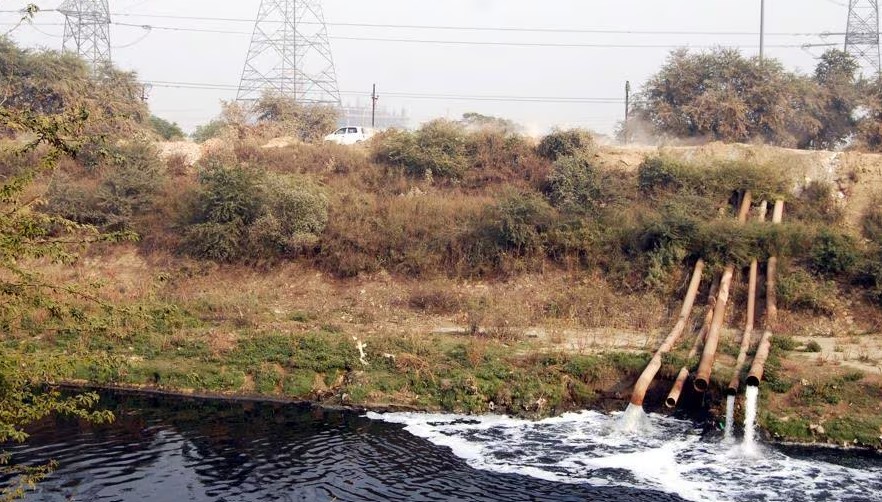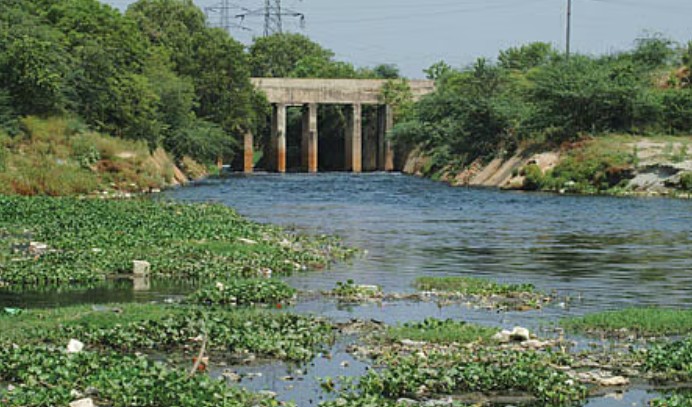The issue of groundwater overexploitation has become a growing concern in several states across India, with Punjab, Haryana, and Rajasthan emerging as the most affected regions. The rapid depletion of groundwater in these states has raised alarms among environmentalists, policymakers, and agricultural experts. The primary reasons behind this crisis are excessive water extraction for agriculture, industrial use, and urbanization, coupled with inadequate recharge mechanisms. The situation is particularly severe in these states due to their heavy reliance on groundwater for irrigation and the absence of effective water conservation strategies.
Punjab, often referred to as the “Granary of India,” is one of the leading states in agricultural production. However, the very success of Punjab’s agriculture has come at a cost, as the indiscriminate use of groundwater for irrigation has led to alarming depletion levels. The Green Revolution of the 1960s introduced high-yield crops such as wheat and rice, which require significant amounts of water. To support this agricultural transformation, farmers turned to tube wells and bore wells, leading to a dramatic increase in groundwater extraction. Today, more than 80% of Punjab’s irrigation needs are met through groundwater, which has resulted in a rapid decline in the water table. In many parts of the state, groundwater levels are dropping by nearly one meter per year, pushing many areas into the “dark zone,” where water availability is critically low.
Haryana, another key agricultural state, faces a similar crisis. The state has seen an unprecedented rise in the number of tube wells and bore wells, with farmers depending heavily on underground water reserves to grow water-intensive crops such as paddy. While the government provides subsidies for electricity used in pumping water, this has inadvertently encouraged over-extraction, leading to severe groundwater depletion. Data suggests that more than 60% of Haryana’s blocks are classified as overexploited, meaning that water is being extracted faster than it can be replenished. This unsustainable practice has led to a decline in groundwater quality, with rising salinity and contamination further exacerbating the problem.

Rajasthan, India’s largest state by area, faces even greater challenges due to its arid and semi-arid climate. Unlike Punjab and Haryana, which have relatively abundant water resources, Rajasthan has always struggled with water scarcity. However, the overexploitation of groundwater has worsened the situation significantly. The state relies heavily on groundwater for drinking water as well as irrigation, and due to its desert-like conditions, natural recharge of aquifers is minimal. Excessive extraction has led to wells drying up, making it increasingly difficult for communities to access safe drinking water. The declining groundwater levels have also led to land subsidence in some regions, posing additional environmental and infrastructural risks.
One of the primary reasons behind groundwater depletion in these states is the predominance of water-intensive crops. The cultivation of paddy, in particular, has been a major contributor to groundwater overuse. Paddy fields require standing water for long durations, making it an unsuitable crop for regions like Punjab, Haryana, and Rajasthan, where natural water availability is limited. Despite this, farmers continue to grow paddy due to government procurement policies that offer assured returns. This has created a cycle where excessive groundwater extraction becomes necessary to sustain agricultural livelihoods, further aggravating the depletion problem.
Government policies and subsidies have also played a role in encouraging overexploitation. In Punjab and Haryana, free or highly subsidized electricity for agricultural purposes has led to indiscriminate pumping of groundwater. Many farmers operate tube wells throughout the day without any restrictions, leading to excessive wastage. While these subsidies were initially introduced to support agricultural growth, they have inadvertently contributed to unsustainable water use. Similarly, the Minimum Support Price (MSP) system has encouraged the continuous cultivation of paddy and wheat, rather than promoting less water-intensive crops such as millets, pulses, or oilseeds.
Climate change has further compounded the groundwater crisis in these states. Rising temperatures and erratic rainfall patterns have led to increased dependence on irrigation, placing additional pressure on groundwater resources. The monsoon, which plays a crucial role in replenishing aquifers, has become increasingly unpredictable, making natural recharge inadequate to compensate for excessive withdrawal. This has resulted in a vicious cycle where falling water tables force farmers to drill deeper wells, further depleting the remaining reserves.
The consequences of groundwater overexploitation are severe and far-reaching. One of the most immediate impacts is the deterioration of water quality. In many parts of Punjab, Haryana, and Rajasthan, excessive extraction has led to the intrusion of harmful contaminants such as fluoride, arsenic, and heavy metals into groundwater. This has serious health implications, as millions of people rely on groundwater for drinking and household use. In Rajasthan, the increasing salinity of groundwater has rendered many wells unusable, forcing communities to travel long distances in search of potable water.
The overuse of groundwater also threatens agricultural sustainability. As water tables decline, the cost of irrigation increases, making farming economically unviable for many small-scale farmers. In Punjab and Haryana, farmers are now forced to invest in more powerful pumps to access deeper groundwater reserves, leading to higher electricity consumption and increased financial burdens. In Rajasthan, where water availability is already scarce, reduced access to groundwater has forced many farmers to abandon cultivation altogether.
The ecological impact of groundwater depletion is also alarming. The drying up of aquifers affects natural ecosystems, leading to the loss of wetlands, reduced biodiversity, and soil degradation. In some regions of Rajasthan, desertification is becoming more pronounced due to excessive water extraction and deforestation. Similarly, in Punjab and Haryana, the depletion of groundwater has led to reduced base flows in rivers and streams, further stressing the already fragile water systems.
To address this crisis, urgent and multi-faceted solutions are needed. One of the most effective strategies is the promotion of crop diversification. Encouraging farmers to shift from water-intensive crops like paddy to less thirsty alternatives such as pulses, maize, and oilseeds can significantly reduce groundwater dependency. The government needs to provide incentives and support mechanisms to facilitate this transition, including assured procurement policies for alternative crops and financial assistance for farmers willing to adopt sustainable practices.
Another crucial step is the implementation of water conservation techniques. Traditional water-saving methods, such as rainwater harvesting, should be revived and integrated into modern agricultural practices. Check dams, recharge wells, and other water conservation structures can help enhance groundwater recharge. In Rajasthan, some villages have successfully implemented traditional water harvesting techniques such as “Johads” (small earthen ponds) to capture rainwater and replenish underground reserves.
Regulatory measures are also essential to curb overexploitation. Strict groundwater management policies, including limits on the number of tube wells and restrictions on deep drilling, should be enforced. Metering agricultural water use and introducing pricing mechanisms based on consumption levels can also help reduce wastage. In Haryana, some pilot projects have introduced drip and sprinkler irrigation systems to optimize water use efficiency, and scaling up these efforts could yield positive results.
Public awareness and community participation play a vital role in sustainable groundwater management. Educating farmers about the long-term consequences of overextraction and promoting efficient irrigation techniques can help change traditional water-use patterns. The government, along with non-governmental organizations, needs to run awareness campaigns and training programs to empower communities to take collective action in water conservation.
In conclusion, Punjab, Haryana, and Rajasthan are at the forefront of India’s groundwater crisis due to excessive extraction driven by agriculture, government policies, and climate change. The situation demands urgent and comprehensive measures to prevent further depletion and ensure long-term water security. Sustainable agricultural practices, policy reforms, conservation initiatives, and community participation must be prioritized to reverse the damage and create a more balanced approach to groundwater management. Without immediate intervention, the looming water crisis could have devastating consequences for millions of people, the agricultural sector, and the overall environment in these states.


